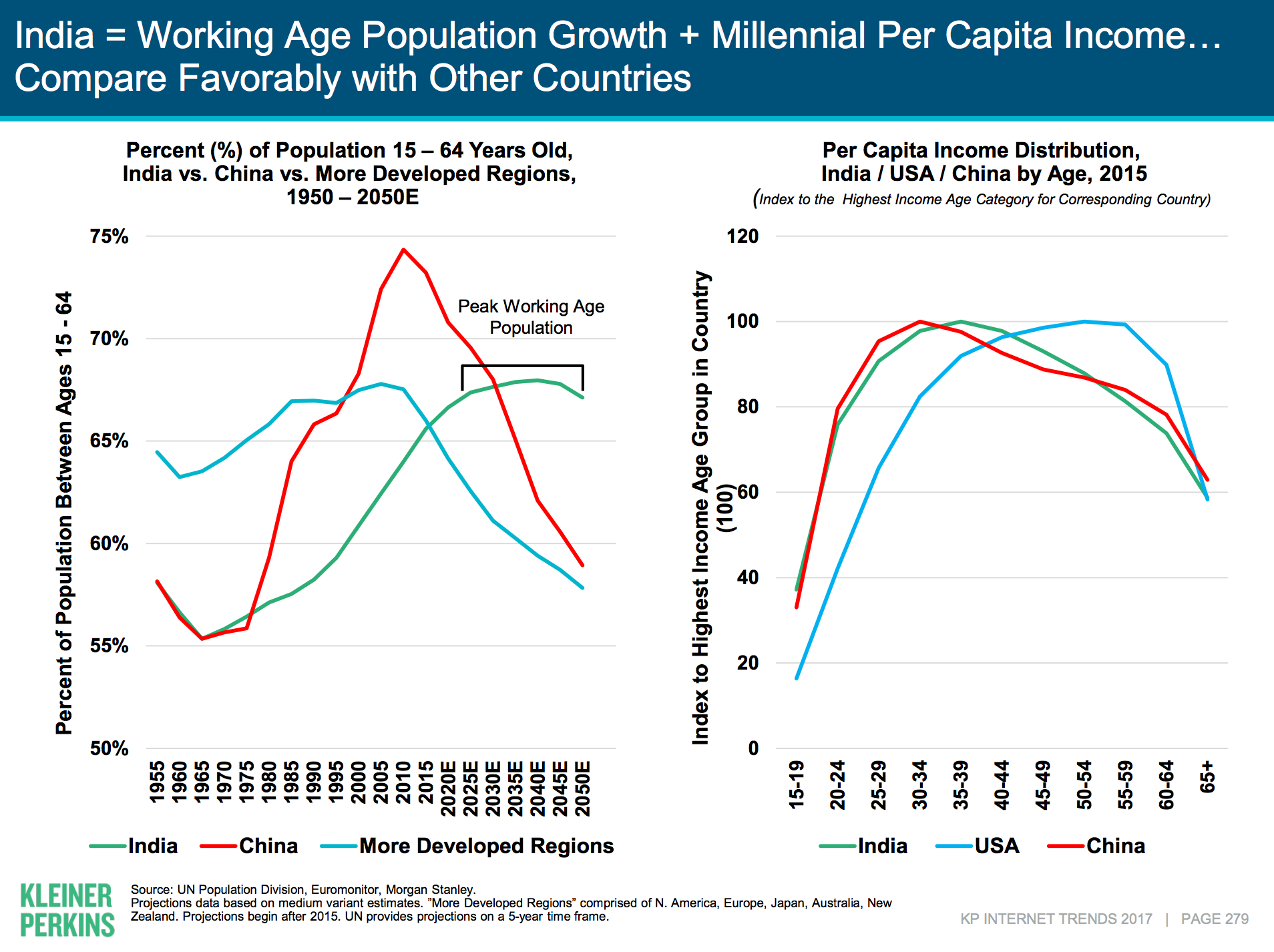In what has become annual tradition, Mary Meeker has just published the 2017 Internet Trends report and it’s a whopper. Over 350 pages describing the state of the modern digital world. I can’t imagine how long it must have taken to pull the data and put it together but I’m incredibly grateful that it’s been done and continues to be done every year. There’s so much great stuff in there that it’s worth going through it on your own but I wanted to highlight the slides that stood out to me.

Digital advertising has finally surpassed TV with a much higher slope. This also indicates total ad spend is growing. I'm surprised that TV advertising hasn't started dropping.

While the entire online advertising industry is growing Google and Facebook are taking up the lion's share. The rich get richer.

Adblocking is growing but it's incredible to see how it varies by country and device type. The Western world is all about adblock on desktop but Asia is all about adblock on mobile. It's incredible that Indonesia has an adblock rate of 58% on mobile.

I just found this interesting and it makes sense given that we're doing so much shopping online and need more proof that we're not being scammed.

Another interesting slide that just highlights the secondary effects the internet is having. I can imagine building lobbies being completely swamped and needing to adapt to much higher shipping volumes.

Pretty cool seeing designs generated by machines based on data. I expect to see much more of this even the ability to create one off designs per customer based on their unique profile.

Compared to the old media companies Netflix is growing incredibly quickly. Other than the Discovery channel every other old company is dropping in minutes watched.

Despite that Netflix is still small compared to the major social network companies.

UX is becoming increasingly important and companies are starting to realize this by improving their designer to engineer ratios.

The next few just highlight the scale of China and India. In this case despite the average GDP of China being significantly lower than the USA it has such a large population that the total gaming revenue surpasses that of the US.

Similar with on demand transportation. We talk about Uber taking over the world but China has more on demand car and bike trips than the rest of the world combined.

India has a similar population to China but is much further behind in adoption. Fewer than 30% of the population is online and it's crazy to imagine what will happen when it gets closer to 100%.

Another example of how different the developing world is. The developing world is mobile first - which probably explains the significantly higher rates of mobile adblocking.

India has a massive opportunity here given how young its population is. In the US peak income is achieved in people's 50s while in India and China it's in the 20s and 30s. It's hard to fathom what this means for the future.
